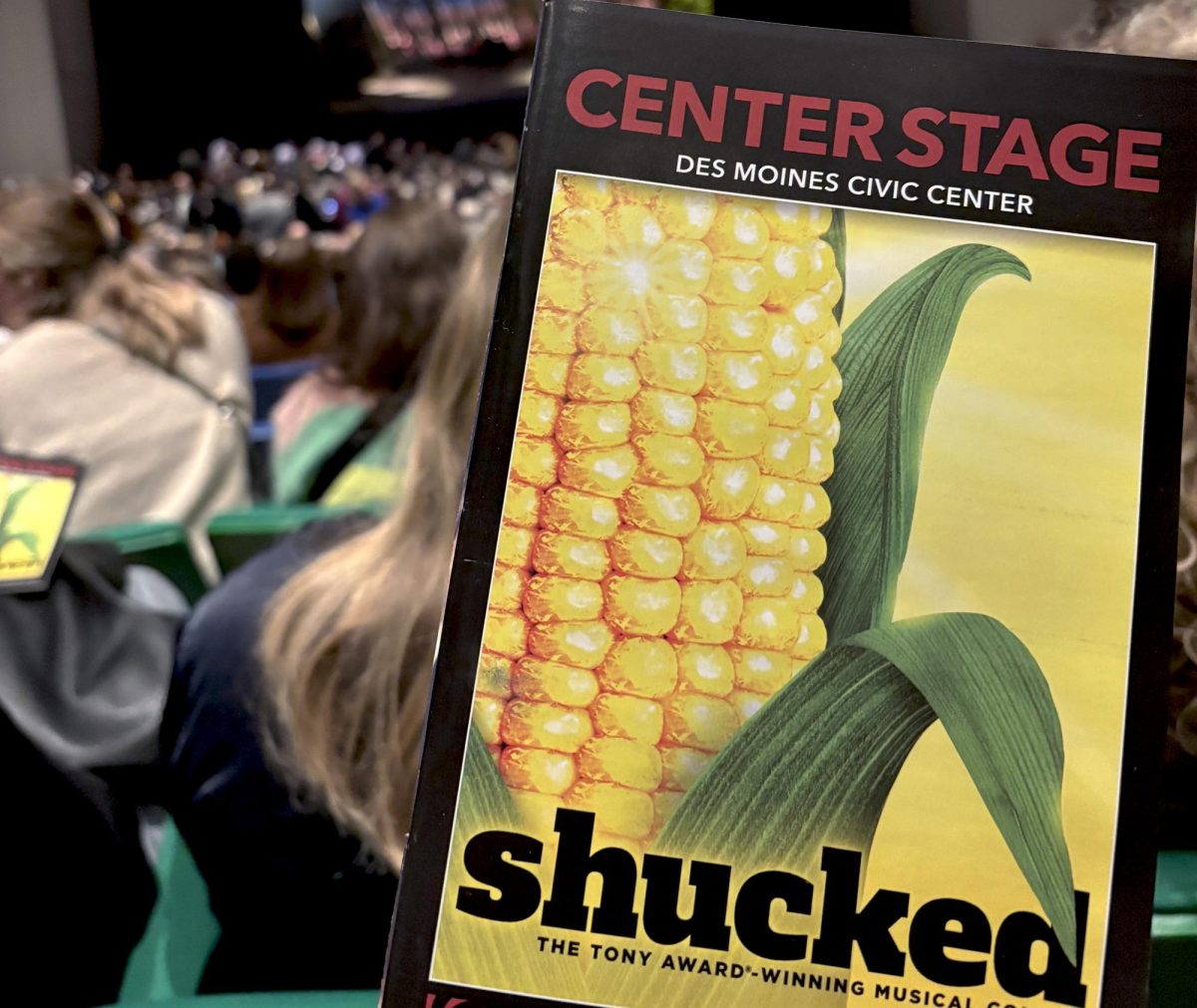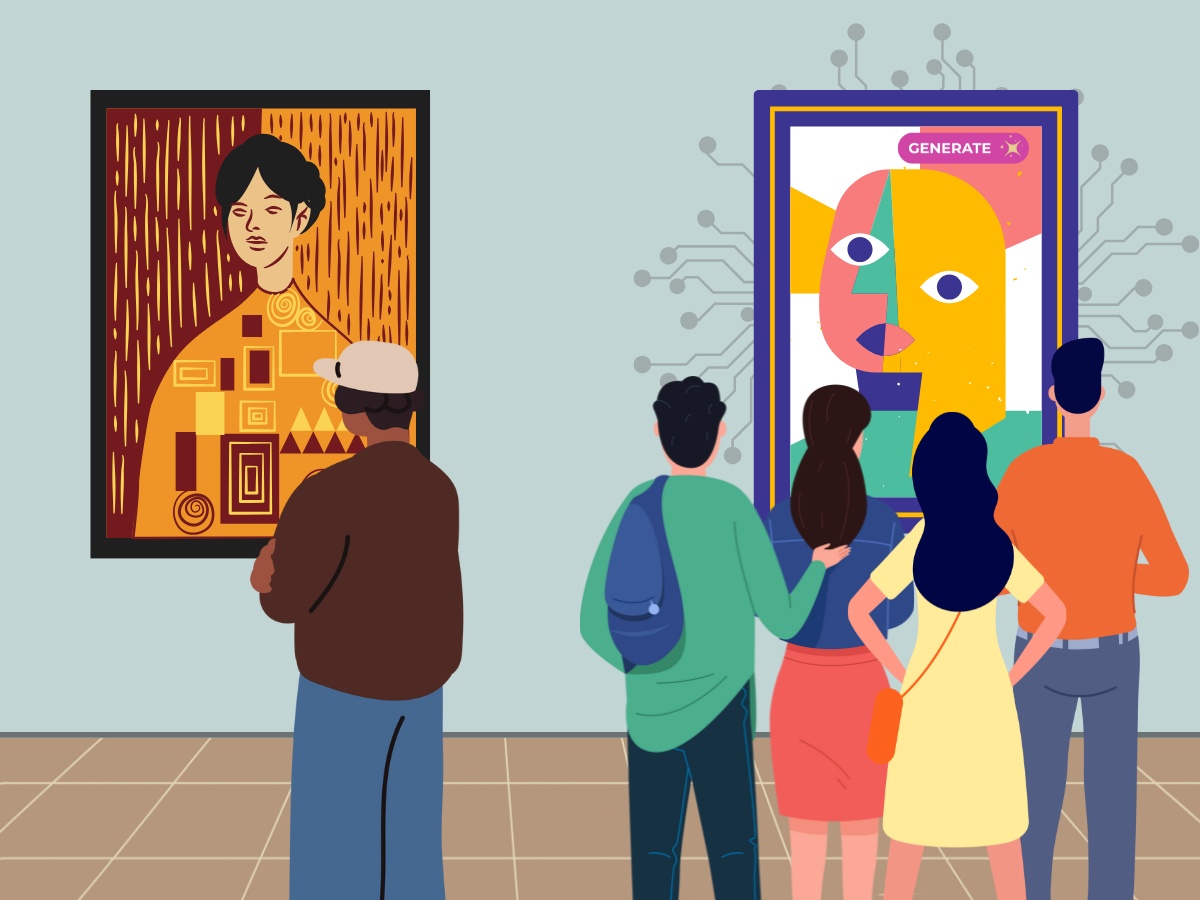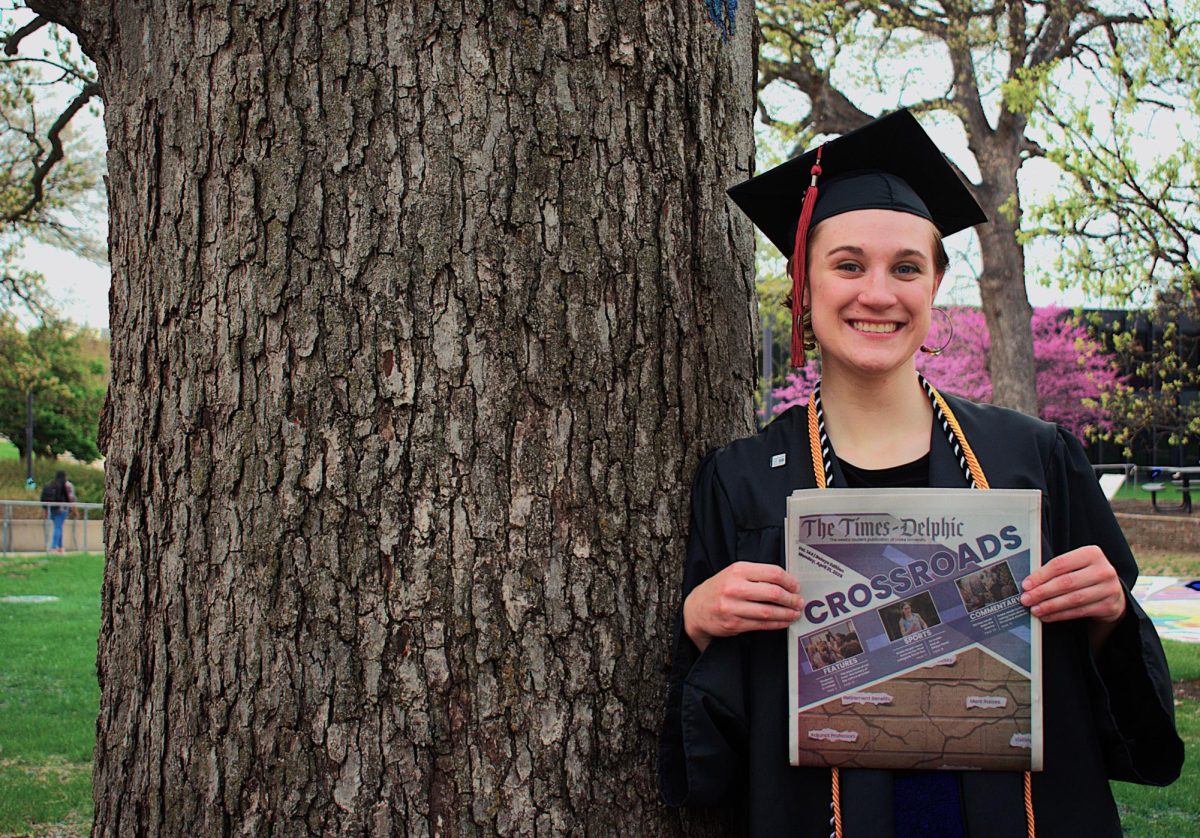“Shucked,” is the newest corniest corn musical on tour. It boasts strong vocals and strong themes of family, loyalty and love. As a lifelong Iowan, I was thrilled to see a musical that represented my culture and showed the urban world a little piece of what rural life felt like, even if it was exaggerated.
I went into the experience unaware of the plot, music or cast. The only information I had was that it was about corn and Reba McEntire was a celebrity spokesperson for the show. “Shucked” written by Tony Award-winning writer Robert Horn, a New York City native, likely never shucked an ear of corn in his life. He’s probably only familiar with the pre-prepared Whole Foods variety. He is also the last person you would expect to write a rural midwestern comedy. I loved “Shucked” and recommend everyone go see it, however, it has some issues that I believe need to be addressed.
The musical opens with a wedding between two high school sweethearts, Maizy and Beau, in the fictional rural Cobb County. Just as the lovers are about to commit the rest of their lives to each other, the county’s corn begins mysteriously dying. This puts their wedding on hold and Maizy takes it upon herself to travel to the big city to find a way to save the corn. As she explores she discovers that her worldview is more limited than she thought. Enter Gordy, a city-slicker con artist who wants to take advantage of Maizy and the residents of Cobb County, who he believes are nothing more than ignorant farm folk. Maizy’s family and friends do not believe that Gordy and Maizy are the answer to their problems. They constantly doubt Maizy’s capabilities. This drives Maizy away from her family and into Gordy’s arms. As Gordy finds a way to save the corn and plans to escape the community thinking he has successfully duped them, an unexpected accident causes him to rethink his priorities.
As an Iowan, I have mixed feelings about “Shucked.” On one hand, I believed the music was good, and the jokes were corny, however, the representation of rural America was lacking at best and offensive at worst. This musical uses the lowest-hanging fruit as a way for city dwellers to laugh at rural Americans whom they view beneath them.
“Shucked” accurately represents some aspects of rural life, life is generally slower with a heavy emphasis on hard work and self-reliance. However, much of the show represented folks from rural areas as ignorant, slow and hard-headed. Maizy is portrayed as a blond, overall-wearing bimbo whose only personality trait is that she loves her fiancé. She has no interests of her own, and most of her conversations fail the Bechdel test. Her fiance Beau’s misogynistic tendencies just reinforce stereotypes of men in rural areas. And don’t get me started on Peanut, Beau’s brother, whose only characteristic is that he’s an ignorant farmer with two brain cells that rarely collide with each other.
As I reflect on the characters’ issues, my other concern with “Shucked” is the selective changes that were made to the national tour production. A few of the more divisive jokes that were made in the Broadway production were cut from the tour, according to those who had seen the original Broadway production. One of the songs, “We Love Jesus,” was also scrapped, and replaced with “Ballad of the Rocks.” I believe art should be presented to all audiences unaltered. Changing the songs and jokes is censorship based on the assumption that it would be offensive. Let us see the original music and form our own opinions on whether we are offended or enjoyed it rather than assuming it is too controversial and deciding for us.
During the intermission, I commented to my mother, “I can’t tell if the people in the musical are laughing with us or at us.” To which she replied, “Both.”
While the corn puns were goofy and the modern societal references were funny, I believe that “Shucked” could use a good hard look in the mirror and reflect on what is so funny about rural America to urban artists. We’re not ignorant — we’re just like you, and we understand when we’re being laughed at.













